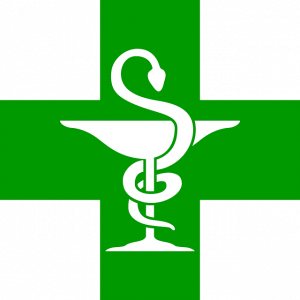Lamentarsi o Esprimere Disappunto in Italiano
Italians are expressive people. To them love, happiness and even anger is meant to be shared. If you have a complaint while in Italy–whether you are returning something to a store or are unsatisfied with your meal–and want to voice it, here are some dialogues that should make the process easier for you. If you’ve bought something from a shop and found the goods to be faulty, damaged, or not as described when you bought them, you can simply take them back to the store and the store will either replace them or offer you a full refund. Likewise, if you go to a restaurant and your meal wasn’t what you ordered or there is something wrong with it, you simply call for the waiter who will replace the meal or offer you a refund.
Complaining about a bad holiday = lamentarsi di aver fatto una brutta vacanza
You have just came back from your horrible holiday and now you want to complain to your travel agent
Agente di Viaggio = Travel Agent/TA
Cliente= Client/C
TA: Buon giorno, come posso aiutarla? = Good morning, how can I help you?
C: Vorrei fare una rimostranza/reclamo riguardo la mia ultima vacanza in Italia dell’altra settimana = I’d like to make a complaint about my holiday in Italy last week.
TA: Mi dispiace sentire questo. Esattamente qual’è stato il problema? = I’m sorry to hear that. What exactly was the problem?
C: Prima di tutto l’autobus che ci ha prelevato all’albergo si è rotto e noi abbiamo dovuto aspettare due ore con un caldo soffocante prima che arrivasse un sostituto. Una volta arrivati in albergo ci siamo accorti che la stanza non era stata pulita = First of all the bus taking us to the hotel broke down and we had to wait for over two hours in the sweltering heat before a replacement arrived. Then when we got to the hotel we found our room hadn’t been cleaned.
TA: Oh santo cielo, si è lamentato con il personale dell’albergo? = Oh good heavens, did you complain to the hotel staff?
C: Naturalmente, ma ci è stato detto che la cameriera era fuori servizio. Ad ogni modo non è tutto. La gente nella stanza di sopra stava facendo rumore come se desse una festa tutta la notte, ogni notte. Ho chiesto un’altra stanza ma l’impiegata mi ha detto che l’albergo era al completo (tutto pieno!) = Of course, but we were told the chambermaid was off duty. Anyway, that’s not all. The people in the room above sounded like they were having all-night parties, every night. I demanded another room, but the receptionist told me the hotel was full.
TA: Capisco = I see
C: E per completare, il cibo al ristorante dell’albergo era orribile. Il cibo era così cattivo che siamo dovuti uscire ogni sera al ristorante malgrado nel prezzo dell’albergo fossero compresi anche i pasti della nostra vacanza = And to cap it all off the food at the hotel restaurant was awful. It was so bad we had to eat out all the time despite having paid for meals in the price of our holiday.
TA: Mi scuso per tutto ciò. Quindi vorrei offrirle, come un gesto di buona volontà, uno sconto del 20% su una delle nostre vacanze in autunno = I do apologize. I’d like to offer you a 20% discount on the price of one of our Autumn breaks as a gesture of goodwill.
C: Solo il 20% di sconto, lei sta scherzando!! Voglio parlare con il responsabile = A 20% discount, you must be joking! I want to see the manager.
TA: Ora è molto occupato , può ritornare tra un’oretta? = He is very busy now, could you be be back within an hour?
C: Ok va bene = Ok that’s fine.
Complaining in a restaurant
Hai cenato al ristorante un paio di sere fa. Di notte sei stato male, hai avuto mal di stomaco e la diarrea. Il dottore ti ha detto che hai avuto un’ intossicazione alimentare. Ora ti senti meglio, quindi sei ritornato al ristorante per lamentarti dell’accaduto = You had dinner at a restaurant a couple of evenings ago. That night you became sick with stomach aches, sickness and diarrhea. The doctor said you had food poisoning. You’re feeling better now and have gone back to the restaurant to complain.
La chiave del successo della tua lamentela è portare alla luce il problema il piu’ velocemente possibile, quindi dando al ristorante l’opportunità di risolverlo. = The key to successful complaining is to highlight the problem right away, thereby giving the restaurant the opportunity to resolve the problem.
Quindi chiama discretamente il cameriere e spiegagli il problema, esprimi il tuo disappunto e chiedigli (uomo) o chiedile (donna) di risolvere la situazione. Non incolpare automaticamente il cameriere; tieni in mente che una lunga attesa del cibo, o un piatto che non è cucinato bene è probabilmente colpa del cuoco e non del cameriere = Then discreetly call the waiter over, explain the problem, express your disappointment, and ask him or her to resolve the situation. Do not automatically blame the waiter; keep in mind that a long wait for food, or a dish that is not cooked to your satisfaction is probably the fault of the chef rather than the server.
Cameriere = Waiter ( Click on second sound file )
Cliente =Client
W: Buon giorno, come posso aiutarla? = Good morning, how can I help you?
C: Buon giorno, lei deve aiutarmi = Good morning, you must help me.
W: Che succede? = What happens with you?
C: Sono qui per fare una rimostranza riguardo la cena che ho avuto qui due giorni fa = I’m here to complain about the dinner I had two days ago. Ho cenato e durante la notte ho avuto mal di stomaco, la nausea e la diarrea. = I had my dinner but during the night I had stomach ache, sickness and diarrhea.
W: Mi dispiace sentire ciò, vedrò cosa posso fare. Ora informo il manager. = I’m so sorry to hear that, I will see what I can do about that. Now I’ll inform the manager.
Il manager arriva immediatamente ed il cliente gli spiega quello che è successo = Manager arrives immediately and the client explains to him what’s happened to him.
C: La cena è stata orribile e durante la notte sono stato male = The food in the restaurant was terrible, and during the night I got sick.
M: Ci vorremmo scusare per questo inconveniente e siamo veramente dispiaciuti che abbiate avuto questa brutta esperienza. Noi vorremmo offrirle una cena gratis per farci perdonare = We would like to apologise for this inconvenience and we are so sorry that you had such a bad experience. We would like to offer you a free dinner to make it up to you.
C: Grazie, mi sembra una buona idea= It sounds good to me.
M: Lei è nostro ospite domani sera o un altro giorno che va bene a lei, e mi auguro lei avrà una piacevole cena, le va bene?= You’ll be our guest tomorrow evening or another time, and I wish you a pleasant dinner, sounds good?
C: Domani sera va bene, grazie! = Great, tomorrow evening works, thank you!
By Elisa Bressan
































